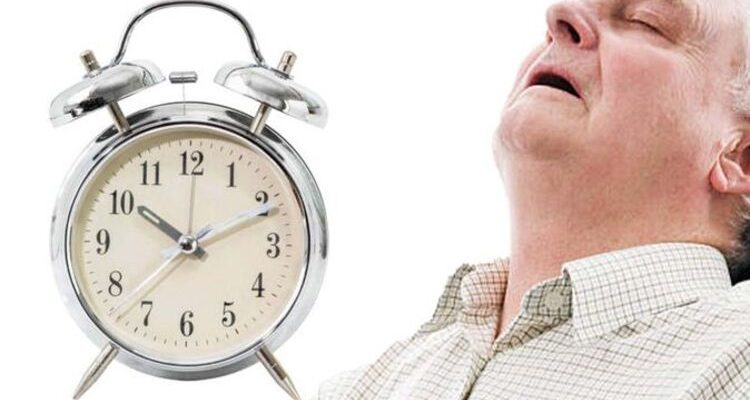Dr Michael Mosley on the importance of routine for sleep
We use your sign-up to provide content in ways you’ve consented to and to improve our understanding of you. This may include adverts from us and 3rd parties based on our understanding. You can unsubscribe at any time. More info
Indeed, sleeping through the night is not something everyone is always able to do, and there is a lot of advice to be found around improving your quality of sleep, and adopting a healthy sleep routine. People with insomnia will regularly find it hard to go to sleep, and can wake up several times during the night and lie awake at night.
“Some people are naturally lighter sleepers or take longer to drop off, while some life circumstances might make it more likely for your sleep to be interrupted, like stressful events or having a new baby,” the NHS states.
If poor sleep is affecting your daily life or causing you distress, you can talk to your GP.
If you have insomnia for less than three months, it is called short-term insomnia. Insomnia that lasts three months or longer is called long-term insomnia.
For most, sleep problems tend to sort themselves out within about a month, according to the NHS.

The Sleep Foundation says a passive attitude can help with relaxation.
The organisation states: “Accepting that it’s normal for your mind to wander allows you to remain at-ease and draw your focus back to the object of your attention.”
Everyone needs different amounts of sleep. On average adults need seven to nine hours, while children need nine to 13 hours. Toddlers and babies need 12 to 17 hours of sleep, every day.
The NHS says: “Most people experience problems with sleep in their life. In fact, it’s thought that a third of Brits will have episodes of insomnia at some point.”
People who smoke also tend to take longer to fall asleep, wake up more frequently, and often have more disrupted sleep.
Caffeine and alcohol can stop you falling asleep and prevent good quality sleep. Therefore, it is recommended that people cut down on alcohol and avoid caffeine close to bedtime.
Caffeine can be found in other sources too. These include:
- Tea
- Some fizzy drinks
- Chocolate
- Energy drinks
- Some pain relievers.
Caffeine interferes with the process of falling asleep, and also prevents deep sleep.
The NHS says how we sleep and how much sleep we need is different for all of us and changes as we get older.
Electronic devices, including computers, televisions, smartphones, and tablets, all emit strong blue light.
When you use these devices, that blue light floods your brain, tricking it into thinking it’s daytime. As a result, your brain suppresses melatonin production and works to stay awake.
The NHS has a number of tips on how to fall asleep, such as sleeping at regular times, winding down before bed, making the bedroom sleep friendly, and keeping a sleep diary.

On the sleep diary the NHS recommends: “If you see your GP or a sleep expert, they will probably ask you to keep a sleep diary to help them diagnose your sleep problems.
“A sleep diary can also reveal underlying conditions that explain your insomnia, such as stress or medicine.”
It adds: “If you’re tired, you may nap during the day, which can make it more difficult to get a good night’s sleep.”
If you have been feeling constantly tired for more than four weeks, it’s a good idea to see your GP so they can confirm or rule out a medical condition that could be causing your tiredness, the NHS says.
Source: Read Full Article
